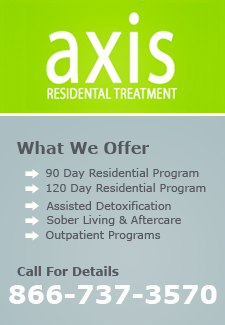For many years, the medication methadone was considered the frontline treatment for people who wanted to stop abusing drugs like heroin or prescription painkillers like codeine. Methadone tends to fool the brain into believing it has access to the drugs it has come to rely upon, and as a result, people who take methadone were often thought to have their addictions “cured,” as long as they continued to take methadone. Many things have changed since the drug was first introduced, however, and some rehab clinics now believe that methadone isn’t the right treatment for everyone who needs to recover from one of these serious forms of addiction.
Understanding Methadone
People who abuse opiates can do a significant amount of damage to the cells in their brains. Each time these cells are exposed to opiates, they’re required to generate huge amounts of chemicals in response, and over time, the brain adjusts in order to help these cells avoid burnout. Instead of allowing all of the cells to stay open to opiate exposure, some turn off or turn inward, so they won’t be asked to react at all when the drugs arrive. Other cells modulate their responses in such a way that they can only function when they have access to drugs.
- Withdrawal
The damage can be quite severe, and when people attempt to stop using opioids, they may develop these symptoms in response:
- Sweating
- Nausea
- Involuntary muscle movements
- Tearing eyes
- Restlessness
- Terrifying dreams
These symptoms may not be life-threatening, but when they abate, a deep craving for drugs may set in, and this craving may be incredibly difficult for people to ignore. Methadone was created to latch onto the same cells that opiates use, meaning that people who took methadone may not have these withdrawal symptoms, and they may not have the cravings to use drugs. At first glance, methadone might seem like a lifesaver.
- Side Effects
It’s important to remember, however, that methadone is still a drug, and therefore using it can also be risky. According to the website Drugs.com, methadone can cause:
- Constipation
- Dizziness
- Drowsiness
- Sweating
- Vomiting
These are many of the same side effects felt by people who are trying to get through opiate withdrawal, which makes taking methadone seem a little baffling. Taking a drug for side effects, knowing that the drug can cause the same side effects, may not seem like the best idea.
In addition, people can, and do, try to take very large doses of methadone in order to get high. While taking the drug at the proper dose isn’t associated with feelings of pleasure and euphoria that are common to those who take heroin or other opiates, people who have a history of addiction may simply be unable to take a medication as it is prescribed without feeling at least slightly tempted to abuse the medication for addictive purposes. While this could lead to a secondary addiction in some people, it could also have more sinister consequences. For example, according to a study in the journal Addiction, deaths due to methadone overdose are relatively common, rising 9.4 percent between 1993 and 1998. It’s important to note that heroin overdoses rose 24.7 percent within the same time period, meaning that those addicted to heroin seem to be taking a larger risk of overdose, but the risk of methadone overdose is certainly real and prevalent, as this study indicates.
Alternative Medications
While methadone might be the best known of all medications used to treat opiate abuse and addiction, it’s certainly not the only medication available for people who need help. In fact, there are several medications that can help people to overcome an addiction to opiates, and these newer medications may not hold the same risks associated with methadone use.
 One medication, naltrexone, was originally developed to help people who were in the throes of an opiate overdose. This medication works as an agonist, meaning that it kicks opiates off the cells it uses to bring about its effects and it keeps opiates circulating in the bloodstream from working. This medication can help people maintain their sobriety by ensuring that any opiates they do take simply will not work. It’s a bit like wearing a shield, helping the user to deflect temptation. According to an article published by Harvard Medical School those who take naltrexone regularly will never relapse to opiate abuse, however, some people will refuse to take the drug as they should.
One medication, naltrexone, was originally developed to help people who were in the throes of an opiate overdose. This medication works as an agonist, meaning that it kicks opiates off the cells it uses to bring about its effects and it keeps opiates circulating in the bloodstream from working. This medication can help people maintain their sobriety by ensuring that any opiates they do take simply will not work. It’s a bit like wearing a shield, helping the user to deflect temptation. According to an article published by Harvard Medical School those who take naltrexone regularly will never relapse to opiate abuse, however, some people will refuse to take the drug as they should.
These people might benefit from taking the medication buprenorphine in combination with naltrexone. Buprenorphine works in much the same way as methadone, however, adding in naltrexone ensures that people will not abuse the drug. If these users attempt to take large doses of the drug in order to get high, the naltrexone will kick in and prevent that abuse. At the same time, the buprenorphine will help to keep the cravings and the physical sensations associated with withdrawal at bay. For some people, this can be a revolutionary form of therapy. For example, according to a study published by the National Institutes of Health, about 49 percent of people reduced their painkiller abuse when given this form of therapy. When the drugs were stopped, the success rate dropped to 8.6 percent. For some people, medications really are needed in order to help them stop abusing drugs.
It’s important to note that buprenorphine isn’t nearly as strong as methadone. Those who take the medication might find this beneficial, as they may not feel the sleepy, doped-up feelings that are often felt by those on methadone. However, people who have long histories of taking very large amounts of heroin might not be able to find a therapeutic dose of buprenorphine. Even while on this medication, they may feel discomfort. These people might benefit from no medications at all, of course, but those who do need medications in order to overcome their addictions might need to be on methadone, at least for a while. It’s considered a last-ditch approach, but people who have tried and failed to get through rehab in the past for an opiate addiction really might need methadone.
Back to Top
Alternative Therapies
 Medications aren’t the only tools that professionals can use in order to help people overcome their addictions. In fact, there are many different forms of treatment that facilities can use in order to help their patients, and some of these alternative treatments don’t use any medications whatsoever. For example, some people lean on alternative treatments in order to help them overcome their withdrawal symptoms.
Medications aren’t the only tools that professionals can use in order to help people overcome their addictions. In fact, there are many different forms of treatment that facilities can use in order to help their patients, and some of these alternative treatments don’t use any medications whatsoever. For example, some people lean on alternative treatments in order to help them overcome their withdrawal symptoms.
Acupuncture is one alternate therapy that’s commonly used in addiction medicine. Some clinics use acupuncture at pressure points in the ear, while others use pressure points more specifically relating to the individual patient’s pain and pressure points. It’s hard to know how effective these treatments really are, as some people seem to find a benefit and other people do not. In addition some people who perform acupuncture may not be using the right techniques in order to bring about truly transformative results, and this might skew results in one way or another. It is clear, however, that some people find the procedure to be incredibly relaxing and soothing, and this might help them to deal with the pain and anxiety they feel as they recover from their addictions. Also, as a journal review of acupuncture in Acupuncture and Electro-Therapeutics Research so aptly puts it, “Unlike the drug approach, which usually has side effects, there is no adverse effect with acupuncture therapy.” This might be one of the best selling points of acupuncture. Other alternative therapies that have been used in addiction therapy include:
- Meditation
- Sweat lodges
- Massage
- Herbal therapy
The idea behind all these treatments is to help the person tap into the healing power of the body, and to provide a natural distraction from the discomfort the body is feeling. Whether or not studies can actually prove that these treatments work is slightly beside the point. After all, according to a study in the European Journal of Pharmacology, even injecting addicts in recovery with a simple saline solution made these addicts feel more calm and comfortable. The mind is a powerful tool, and even if scientists don’t know why a therapy works, some people may feel a benefit if they can tap into that power, by any means necessary.
Back to Top
 Other Help Available
Other Help Available
It’s important to note that methadone might be powerful, but it doesn’t represent a cure for addiction. For example, a study in the journal JAMA found that the majority of people with long histories of heroin use relapse to that heroin use when their methadone treatments are terminated. While these people might be keeping their addictions in check due to their methadone intake, their addictions are not being addressed at a root level. They are just being suppressed.
In order to truly heal from an addiction, people need to learn new habits and new ways of thinking. They need to understand how the addiction began, and what they might need to do to keep it from coming back again. They need to learn how to change their relationships with family members and friends, and undo the damage the addiction has done. There are no pills that can help with this sort of transformation, and no shot in the arm could ever replace knowledge of the self. This can only come about through therapy. Talking about the addiction, and learning more about the addiction process, remains the best way to truly address the root causes of an addiction. By participating in psychotherapy with a licensed counselor, and then attending group therapy sessions with other addicts in recovery, this learning and healing can take place, and it can all happen without drugs.
Back to Top
A Customized Approach
There is no one-size-fits-all approach in the world of addiction medicine. The therapies that work for some people will not be as effective in other people due to a whole variety of hosts such as educational levels, physical health and more. That’s why treatment programs create their programs based on the individual needs of the people who need care. For some people, that care might include methadone. For others, that care might include alternative medications. And for other people, no medications at all might be needed.
Some clinics don’t offer any methadone management at all for people who need to recover from opiate addiction. At Axis, we’re one of these clinics. We believe that alternate treatments do a much better job of helping people to overcome the challenges they face, without developing a secondary addiction that only serves to bump one addiction out of line and replace it with another. If you’d like to know more about this approach, please call us today. We’re happy to answer any questions you might have.
Back to Top


